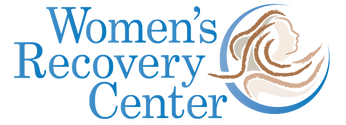New Federal Drug Policy
- Jun 22, 2021
- 2 min read
by Womens Recovery Center
March 19, 2018

The White House announced that there would be a major policy statement from New Hampshire concerning the opioid public health epidemic. It is anticipated that the policy will have three concepts. The plan is stated to cut demand through education and preventing over-prescribing; reduce the supply of illegal drugs by toughening penalties; and expand opportunities for evidence-based addiction treatment.
Addiction is a disease of the brain. Opioids alter the chemistry of the human brain.
Opioids target the brain’s reward system by flooding the circuit with dopamine. Dopamine is a neurotransmitter present in regions of the brain that regulate movement, emotion, cognition, motivation, and feelings of pleasure. The over stimulation of this system, which rewards our natural behaviors, produces the euphoric effects sought by people who misuse drugs and teaches them to repeat the behavior. In 1956, the American Medical Association (AMA) declared alcoholism a disease. Addiction followed in 1987.
According to the Washington State Institute for Public Policy, there are an estimated 6.8 million Americans experiencing symptoms of addiction. Funding for addiction treatment is decreasing rather than increasing. In Ohio, the Senate overrode the Governor’s veto of Medicaid expansion thus eliminating Medicaid expansion effective July 1, 2018 making it more difficult for individuals to access evidence based care. In addition, healthcare addiction and behavioral care are now considered pre-existing conditions which will increase the costs for healthcare. Some experts now believe for every dollar invested in community treatment there is a savings of $18.
In the 1960’s, the War on Drugs brought with it tough prison sentences. The U.S. now has 2,000,000 sitting in prisons at the cost of up to $60,000 per year per prisoner. It is estimated that 88% of individuals that are released and return to their communities.
There has been progress in Ohio. Ohio Automated Rx Reporting System (OARRS) is a tool to track the dispensing and personal furnishing of controlled prescription drugs to patients. OARRS is designed to monitor this information for suspected abuse or diversion and can give a prescriber or pharmacist critical information regarding a patient’s controlled substance prescription history.
The Women’s Recovery Center has four recommendations to fully address this public health crisis.
Preserve Medicaid and insurance coverage
Give addiction and mental health parity with physical health
Encourage uniform prescribing practices
Increase access to evidence based treatment programming





Comments